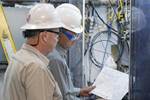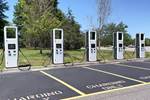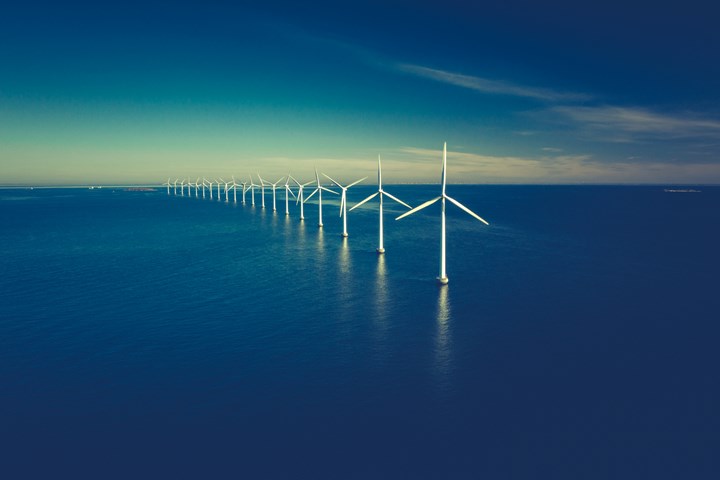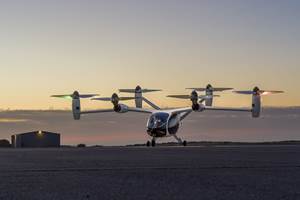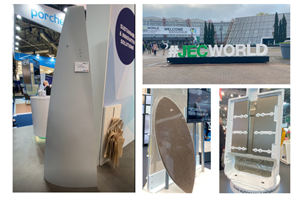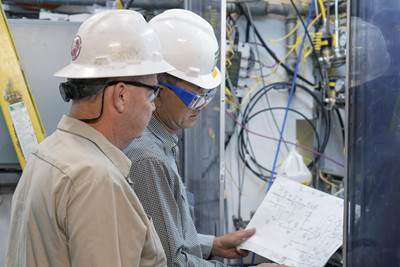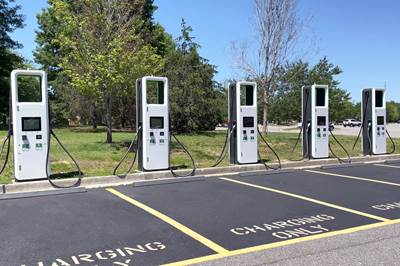WETO funding opportunity addresses wind energy deployment challenges
Wind Energy Technologies Office releases $28 million in funding for interested parties to address barriers to the deployment of wind energy onshore, offshore and distributed.
On Dec. 6, the U.S. Department of Energy’s (DOE) Wind Energy Technologies Office (WETO) released a $28 million funding opportunity to lower costs and address barriers to the deployment of wind energy in all its applications — offshore, land-based and distributed.
This opportunity, funded through the U.S. president’s Bipartisan Infrastructure Law, will support research to improve offshore wind transmission technologies, reduce barriers for distributed wind deployment by communities, better understand the impacts of offshore wind development on affected communities and reduce impacts to wildlife.
Wind energy accounted for more than 9% of total domestic electricity generation in 2021 and will play a significant role in achieving the U.S. administration’s goals to reach 100% clean electricity by 2035 and a net-zero emissions economy by 2050.
WETO estimates making up to 27 awards under this funding opportunity, ranging between $200,000 and $3,000,000, and encourages underserved communities and underrepresented groups to participate in this funding opportunity.
Applicants must submit a concept paper by 5 p.m. ET on Jan. 20, 2023, to be eligible to submit a full application.
Topic Area 1: High-Voltage Direct Current for Offshore Wind Transmission – $9.7 million total for five to six projects
This topic area seeks applications to advance technologies needed to transmit large amounts of electricity from offshore wind over long distances.
- Subtopic 1a: HVDC Standards and Benchmark System Development for Offshore Wind
Funding in this subtopic area will address gaps in U.S. high-voltage direct current (HVDC) standards and begin addressing transmission for offshore wind. - Subtopic 1b: Multi-Terminal HVDC
Funding in this subtopic area will support development of HVDC controls and identify functional requirements to address multi-terminal HVDC deployment barriers. - Subtopic 1c: Curriculum Development for Education and Workforce Training
Funding in this subtopic area will identify and address gaps in education and workforce training to support HVDC transmission deployment for U.S. offshore wind.
Topic Area 2: Advancing Deployment of Distributed Wind – $3.3 million total for two to four projects
This topic areas seeks applications to improve permitting processes to make distributed wind more accessible to communities where distributed wind can be cost-effectively and equitably deployed. Distributed wind energy — wind that provides power for nearby homes, farms, schools and businesses — can help communities transition to low-carbon energy. However, established zoning and permitting processes for distributed wind are not present in all municipalities, and others have burdensome requirements that discourage development. To reduce costs and accelerate the equitable deployment of community-based clean energy, funding in this topic area will support innovative zoning and permitting approaches for distributed wind projects that leverage successes that have been achieved in permit reform for distributed solar photovoltaics and that work for communities and industry alike.
Topic Area 3: Offshore Wind Energy Social Science Research – $6.9 million total for four to eight projects
This topic areas seeks applications to support social science research and community engagement that helps communities benefit from offshore wind development.
- Subtopic 3a: Community Impacts of Offshore Wind Development
Funding in this subtopic area will help characterize economic and other impacts of offshore wind development on local communities. - Subtopic 3b: Capacity Building for Community Participation in Offshore Wind
Funding in this subtopic area will support projects that build capacity for communities to better participate in, and benefit from, offshore wind development.
Topic Area 4: Bat Deterrent Technology Development – $8 million for three to eight projects
This topic area seeks applications to improve technologies that help bats avoid wind turbines as the industry works to minimize impacts to local wildlife and ecosystems. Funding in this topic area will support bat behavioral research, technology development and field testing to advance bat deterrent technologies.
Download the full funding opportunity on the EERE Exchange website. For FOA-specific support, contact WETOFOA@ee.doe.gov
Related Content
How composites have become a necessity
Composites used to be one of many material options across industries and applications, but that's not the case anymore.
Read MoreHonda begins production of 2025 CR-V e:FCEV with Type 4 hydrogen tanks in U.S.
Model includes new technologies produced at Performance Manufacturing Center (PMC) in Marysville, Ohio, which is part of Honda hydrogen business strategy that includes Class 8 trucks.
Read MoreJEC World 2023 highlights: Recyclable resins, renewable energy solutions, award-winning automotive
CW technical editor Hannah Mason recaps some of the technology on display at JEC World, including natural, bio-based or recyclable materials solutions, innovative automotive and renewable energy components and more.
Read MorePolar Technology develops innovative solutions for hydrogen storage
Conformable “Hydrogen in a Box” prototype for compressed gas storage has been tested to 350 and 700 bar, liquid hydrogen storage is being evaluated.
Read MoreRead Next
Trillium awarded DOE funding for bio-based acrylonitrile demonstration plant
New award will enable Trillium and its project partners Solvay, Koch Modular and Matric to demonstrate sustainable production of acrylonitrile at scale for use in various material applications like carbon fiber.
Read MoreU.S. DOE presents $96 million to advance clean vehicle technologies
Funding will focus on expanding EV charging accessibility, creating clean non-road vehicles and advancing new materials and electric drive systems all to ultimately cut carbon emissions.
Read MoreVIDEO: High-volume processing for fiberglass components
Cannon Ergos, a company specializing in high-ton presses and equipment for composites fabrication and plastics processing, displayed automotive and industrial components at CAMX 2024.
Read More

